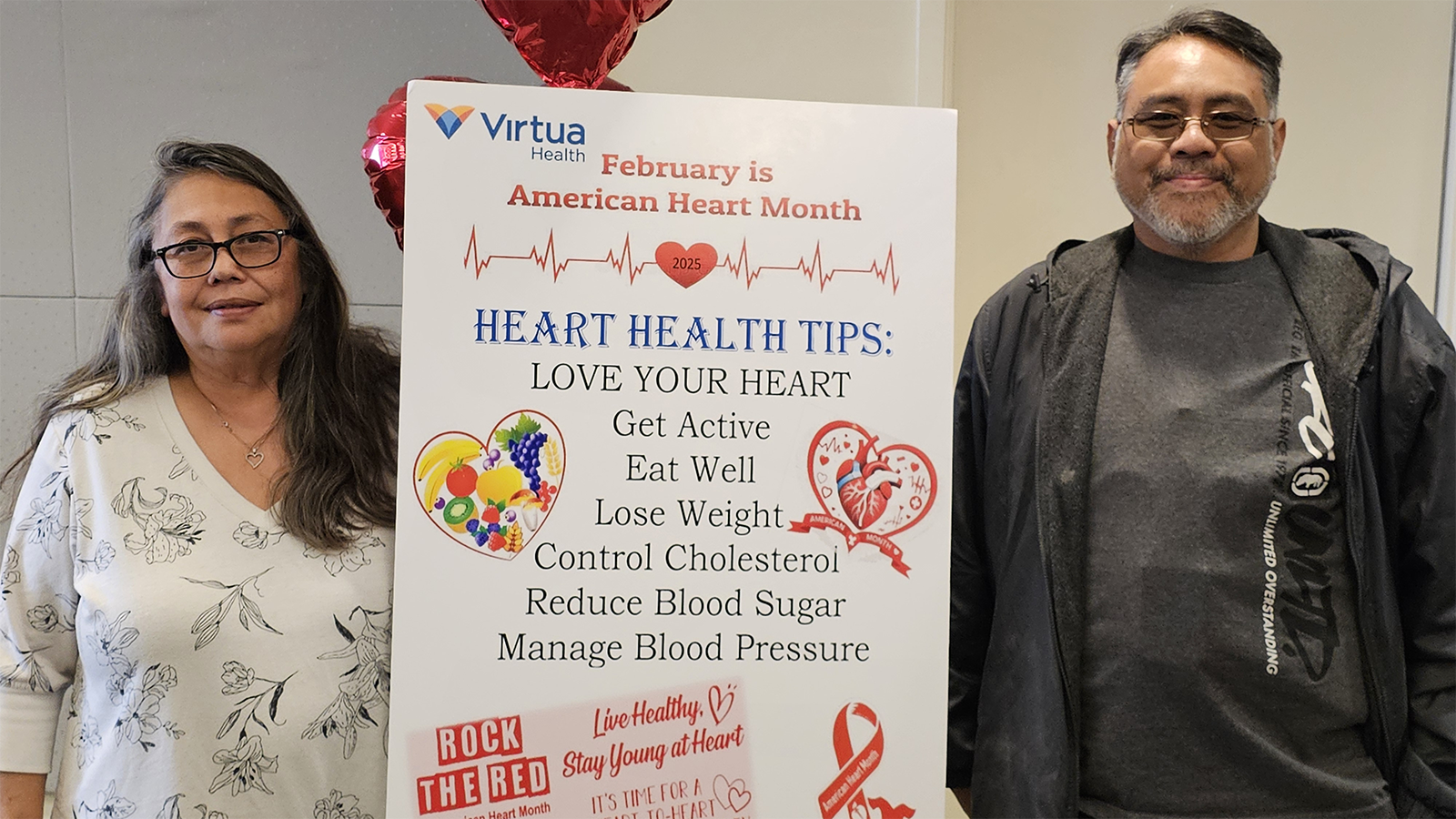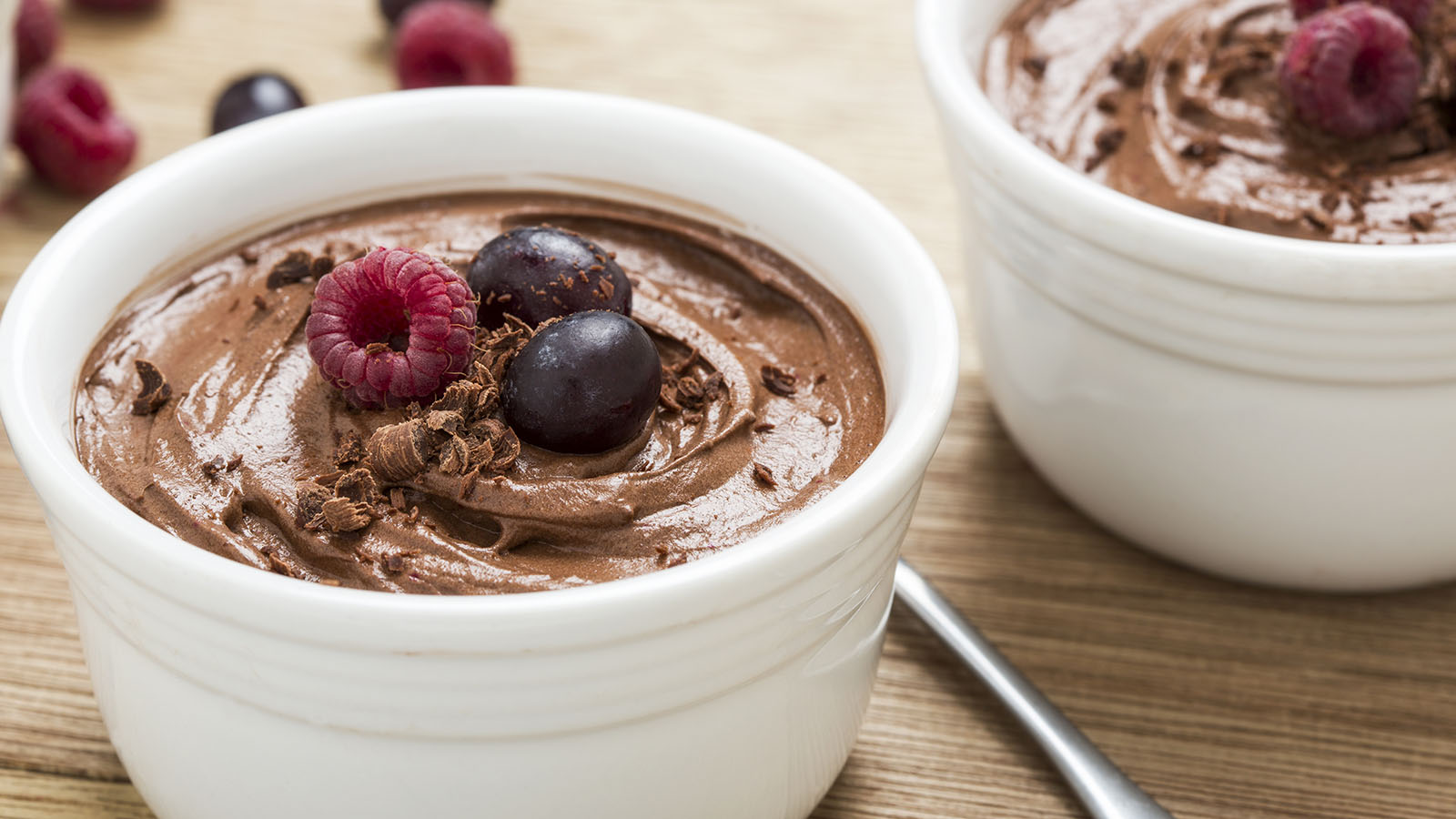"Reduce Your Heart Disease Risk With a Plant-based Diet"
Plant-based diets rich in fresh fruits and vegetables, whole grains, and legumes can lower your risk for heart disease. Virtua cardiologist Rozy Dunham, MD, FACC, can help you make the switch.
By Rozy Dunham, MD, FACC, Cardiologist, Virtua Cardiology
You’ve probably heard people talk about following a “plant-based” diet. What does that mean? Is it the same thing as being vegetarian or vegan? And can I still eat meat every once in a while?
Think of “plant-based” as an umbrella of diets, with other nutrition plans falling under it. The Mediterranean, DASH, and MIND diets are all popular examples. The main idea is making fresh fruits, vegetables, legumes, whole grains, and nuts the central part of your meals while limiting meat and dairy.
Plant-based diets are rich in fiber, vitamins, and minerals that can help lower your blood pressure, improve your cholesterol, and lose weight. So if you are living with or are at risk for heart disease, plant-based diets can be beneficial.
What Does the Research Say?
Researchers have been studying the benefits of plant-based diets since the 1980s. Studies published recently in the Journal of the American Heart Association and JAMA Internal Medicine found that diets high in plant-based foods can decrease your risk of dying of heart attack, stroke, or heart failure by 32 percent, and developing type 2 diabetes by 30 percent.
Other research has found that plant-based diets improve cardiovascular conditions such as angina (chest pain) and atherosclerosis, which occurs when arteries become narrowed or blocked due to a buildup of a cholesterol-containing substance called plaque. Plant-based diets also have been proven beneficial in reducing the risk of a second cardiac event in someone who has already had a heart attack.
There’s also evidence a plant-based diet can reduce your risk for developing cancer, and can improve the symptoms of autoimmune conditions such as psoriasis, and inflammatory bowel diseases like ulcerative colitis and Crohn’s disease.
Making the Switch to a Plant-Based Diet
Switching to a plant-based diet is a lifestyle change that can be intimidating. But you don’t need to dive head-first and become fully vegetarian or vegan.
You can start by replacing one meal a day with a plant-based selection and gradually add more to your diet each week. For instance, swap a sandwich for a salad for lunch, or have a handful of nuts for snack instead of a candy bar.
The key is eating more of the right plants and eliminating unhealthy foods. Eat brown rice and whole-wheat bread instead of white bread and white rice – which are highly processed and have a high glycemic index. Even though French fries are made from potatoes, they’re loaded with sodium and can lead to higher blood pressure.
You also don’t have to give up meat entirely. The Mediterranean diet, for example, allows for fish, poultry, and low-fat dairy products, as well as the occasional piece of red meat (but not bacon, hot dogs, or other processed meats). A study in the Journal of Clinical Nutrition found that eating 3 ounces of unprocessed red meat, three times a week, did not worsen cholesterol or blood pressure levels.
Need help getting started?
Your health care provider and a dietitian can provide advice, including supplements you may need to take to replace nutrients normally consumed through animal products. There are also plenty of websites, apps, and books with recipes and even pre-made grocery shopping lists for inspiration.
Achieve Your Diet Goals!
Virtua’s registered dietitians offer private and group weight-loss coaching options to help you achieve a healthy lifestyle. For more information about our weight management programs and services, call 888-847-8823.
There's So Much More to Explore
Discover expert insights, inspiring stories, health tips, and more by exploring the content below!

How the Unique Stages of a Woman's Heart Affect Her Health

Complex Aortic Surgery Provides Lu’Shell Hope for the Future

HeartTalk Magazine

Are You Eating Too Much Salt? High-Sodium Foods to Watch For

4 Exercise Tips to Help You Reverse High Blood Pressure

Timely Heart Care During a Heart Attack Helps Joe Feed the Community

3 Reasons Why Now's the Time to Find Relief From Varicose Veins

Lifesaving Heart Care Creates a 'Bond That's Never Left Us'

How High Blood Pressure Affects Your Body

5 Interesting Facts About Your Heart

Get to the Bottom of Blood Pressure Numbers

CABG Surgery: What Women Should Know About Heart Health and Healing

When to Take Action for a Stronger Heart

Groundbreaking Renal Denervation Procedure Controls a Lifetime of High Blood Pressure

Patient Story: LVAD Mechanical Pump Strengthens Michael's Heart Function

Mitral Valve Surgery Keeps Yaneth Living the American Dream
Inside Look at Blood Vessels Aids PAD Treatment
Denise Davis: Pay Attention to Your Heart Health

Sweet Music: Trust, Teamwork Save Justin from Heart Attack

Complex Heart Surgery Nets James a Lifelong Friend

8 Key Steps to Better Blood Pressure Control

Signs You Should Get Treated For Vein Problems

One New Heart Valve Saves Two Lives in the Tritten Family

What You Need to Know About Heart Failure

6 Numbers Key to Keeping Your Heart Healthy

Five Mindfulness Tips That Can Help Heal Your Heart

Watchman Heart Device: a Technological Breakthrough for Blood Clot Prevention

Albert's Emergency Cardiac Surgery Is a 'Story of a Lifetime'

Love Your Heart: Essential Care Tips for Every Stage of Life

How Do I Measure My Blood Pressure at Home?

How Do I Improve My Cholesterol Levels?

3 Ways to Reduce Your Stroke Risk

Can Your Gut Health Affect Your Heart?
Advanced Heart Failure Therapies Get Bernadine Back to Full Speed

Keeping the Beat: Advanced Heart Surgery for Aortic Aneurysm

Heart-Healthy Summer Recipe: Hummus and Veggies

4 Delicious Heart-Healthy Recipes Perfect for Summer

Heart Healthy Summer Recipe: Dessert Parfait

Heart-Healthy Summer Recipe: Pear and Walnut Salad

Heart-Healthy Summer Recipe: Terrific Turkey Burgers
Atrial Fibrillation and Stroke: What's the Connection?
Heart Tests Your Doctor May Order
Managing Pregnancy for Mothers With Heart Conditions

Heart Healthy Recipe: Basil Pesto Pasta With Seared Vegetables

Heart Healthy Recipe Chocolate Avocado Chia Pudding
Keep Your Heart Rhythm in Check With Your Smartwatch
Mind Your Meds for Blood Pressure Risks
Magic Pill for Heart Health? Cut 300 Calories a Day
3 Smart Ways to Boost Your Heart Health
3 Best Exercises For Heart Health

Get Your Heart Pumping With These 25 Workout Songs
Your Chest Pain: Heartburn, Heart Attack, or Something Else?
3 Heart Healthy Recipes to Win Valentines Day
How Work and Home Stress Can Affect You
Why Improving Your Health Is Going To The Dogs And Cats
Why Younger Women Need Start NOW To Safeguard Their Hearts From Heart Attacks
Can You Die of a Broken Heart?
Mitral Valve Surgery Opens Doors for Improved Quality of Life
6 Healthy Habits to Start in Your 20s for Better Lifelong Health
Do You Have a Fatty Heart?
Get Pumped! Assist Devices Can Improve Heart Failure Symptoms
A Cardiologists Advice on Heart-saving Emergency Cardiac Care
Virtua Doctor’s Experience Is a Warning for All About COVID-19 and Strokes
You May Feel Fine, but Gregory Says "Don't Skip Your Medical Care"
In Sickness and in Health: Couples Often Share Heart Disease Risk
"Reduce Your Heart Disease Risk With a Plant-based Diet"
Hybrid Robotic Heart Surgery and Valve Replacement Restores Quality of Life
Can Marijuana Hurt Your Heart Health?
6 Tips for Restoring Your Heart Rhythm
Eat Smart for Your Heart
Cardiac Rehab: Strengthening Your Heart After Leaving the Hospital
Your Heart Needs A Good Nights Sleep
Are You at Risk for AAA—the Silent Killer?
The Cardio Oncology Team Protects Your Heart During Cancer Treatment
Get Relief From Painful Varicose Veins This Summer
Exercise Your Way to a Stronger Heart
Fish Oil: A Good Catch or a Scam?
My Heart Seems to Skip a Beat - Should I Be Worried?
Menu Planning? Try These 5 Heart-smart Substitutions

5 Health Risks Tied to Weight

